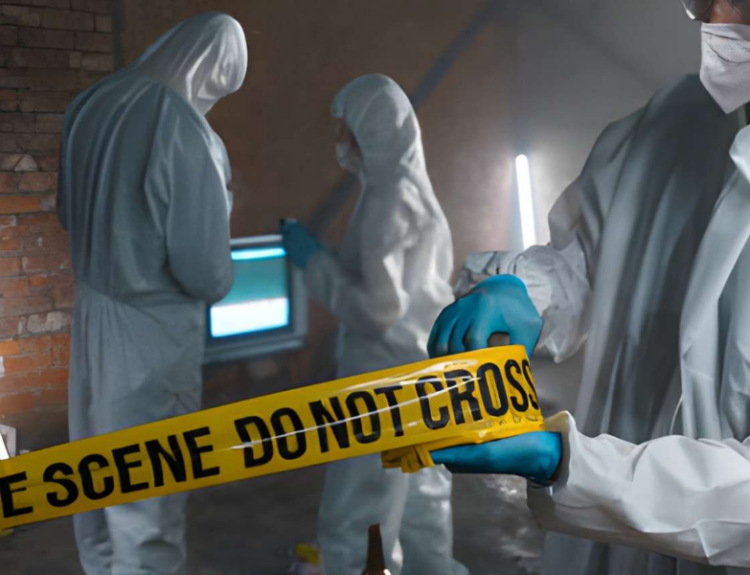A criminal psychologist plays a crucial role in understanding criminal behaviour from a scientific perspective. They study criminals’ psychology and motivations to assist professionals, such as prosecutors and police, determine why people commit crimes.
If you are thinking of choosing it as your career path, then it is important to know what it takes as well as the responsibilities of the occupation so you can plan accordingly. This article outlines how you can become a criminal psychologist and the potential job opportunities and salary expectations.
What Do You Do as a Criminal Psychologist?
The majority of criminal psychologists work with law enforcement agencies, where they conduct studies of criminal behavior, often as part of criminal investigations. They assist law enforcement professionals in building profiles of offenders and make them understand the motivations and reasons behind the crime as well as outline potential next steps to follow.
Criminal psychologists also assist prosecutors and defence attorneys in deciding which arguments are most persuasive for their cases. They are often asked to conduct climate surveys in high-profile cases to determine whether pre-trial publicity has affected public opinion.
What Are the Required Criminal Psychologist Qualifications?
If you are interested in becoming a criminal psychologist, follow these steps:
- Complete your bachelor’s degree
- Earn a master’s degree in criminal, forensic, or clinical psychology
- Complete a doctoral program (PhD) in criminal, forensic, or clinical psychology
- Complete internships
- Completing the supervised work experience requirement
- Pass the EPPP and state exams
- Conduct a background check
- Comply with any additional state requirements (if any)
- Make an application for licensure
Let’s discuss these qualifications for a criminal psychologist in a little detail:
Educational Path to Becoming a Criminal Psychologist
To pursue a career in criminal psychology, aspiring psychologists typically start with a Bachelor of Science (BS) degree program, to gain a strong foundation in psychological theories, methods, and practices. Many universities offer criminal and forensic psychology bachelor’s programs. Check their admission requirements, fees along with course outline before applying to them.
Further advancing in this field usually requires a master’s degree, which prepares graduates for entry-level roles in criminology and forensics.
However, for the most sought-after positions, an APA-accredited doctorate (PhD) is necessary, with some programs requiring 1-2 internships. By doing so, you will be able to specialize and become licensed to practice psychology in your chosen field and even start private practice.
Clinical Experience Required for Criminal Psychologist
Psychology graduate programs often require students to complete supervised clinical hours during which they gain practical experience working with clients.
Criminal Psychologist Licensing and Certification
While the requirements for licensure vary from state to state, a person is required to have a license in order to practice psychology. The majority of states require a Ph.D. that is accredited by the APA in order to obtain a license.
No matter what the degree, all states require criminal psychology professionals to complete supervised practice hours (under the direction of a licensed psychologist) before obtaining licensure. To maintain that license, continuous professional development is also required.
It is essential to become a licensed criminal psychologist to ensure quality, facilitate mandatory reporting, adhere to professional conduct standards, and observe legislation, regulations, and bylaws.
What’s the Difference Between Criminal Psychology and Forensic Psychology?
It is correct to state that criminal psychologists and forensic psychologists are both professionals who are trained to study unlawful conduct and to study criminals, but they do so in different ways. Here is how:
| Category | Criminal Psychology | Forensic Psychology |
| Educational Requirement |
|
|
| Work Environment |
|
|
| What They Do |
|
|
| Career Progression |
|
|
Criminal Psychologist Career Progression
Entry Level Roles
A criminal psychologist starts their career by taking entry-level positions that offer basic exposure to criminal behavior analysis, psychological assessments and research activities.
Working as research assistants, forensic interviewers, or case managers to gain experience with law enforcement and correctional facilities while studying criminal psychological behavior is the usual start. The initial experiences of criminal psychologists help them build essential competencies for profiling risk evaluation and offender treatment.
Mid-Level Roles
Criminal psychologists transition to mid-level positions, which include criminal profiling and law enforcement consulting roles, after gaining relevant experiences. At this point, working professionals collaborate closely with investigative teams to analyze crime patterns while conducting offender behavior studies alongside profile development.
Law enforcement and legal professionals benefit from assessments that criminal psychologists deliver to suspects, victims and inmates to make informed decisions.
Senior Positions
Later on, those who reach senior positions conduct criminal investigations by examining perpetrators’ mental states to help law authorities detect criminal intentions and psychological conditions. Practicing criminal psychologists who gain significant experience can manage teams of psychologists who work in law enforcement agencies or private firms.
These professionals find employment opportunities at correctional facilities and law enforcement agencies, court systems, and rehabilitation centers throughout their professional lives. Through regular professional development and practical experience, they can construct a fulfilling career dedicated to studying and managing criminal actions.
Best Criminal Psychology Jobs, Opportunities, and Salaries
Here is a detailed information on the criminal psychology and criminal justice jobs that you can pursue if you choose to pursue this path in your career:
-
Psychological Profiling Jobs
- Criminal profiler. The purpose of criminal profiling is to identify patterns of criminal behavior. It is their objective to find similarities between the psychology of criminals of the past and present. As a result of analyzing evidence, reports, scenes, and testimonies, they formulate profiles and provide law enforcement professionals with reports.
Salary: $83,640 per year
- Criminal Psychiatrist. Criminal psychiatrists diagnose and treat mental disorders in criminals, often in conjunction with legal teams. Criminal psychiatrists benefit from their degrees by helping juries and lawyers assess the mental health of defendants during legal proceedings.‘
Salary: $261,385 per year
-
Highest Paying Criminology Jobs
- Criminal psychologist. Criminal psychology degrees can be applied directly to careers as criminal psychologists. They assess the motivations and mental states of people who commit crimes to aid law enforcement. Criminal psychologists have specific responsibilities depending on their specialty and location.
Salary: $104,852 per year
- College professor. College professors are usually experienced criminal psychologists. A criminal psychology professor can teach courses in psychology as well as criminal justice. Criminal psychology professors are responsible for preparing lectures, delivering tests, and advising students.
Salary: $114,792 per year
- Clinical psychologist. The purpose of a clinical psychologist is to assess the mental health of their clients and develop treatment plans that will help them improve their mental health. Using their scientific knowledge, these professionals treat patients with complex medical conditions in clinical settings.
Salary: $103,503 per year
-
Entry-Level Criminology Jobs
- Research assistant. Research assistants work with other professional researchers by collecting supporting materials for their research. It is possible that their managers will assign them the responsibility of planning research projects, arranging and scheduling interviews and creating surveys to gather information.
Salary: $45,249 per year
- Probation Officer. Generally, probation officers serve as principal supervisors for those offenders who have been sentenced to probation instead of imprisonment or who have been released from prison and placed on probation.
These offenders are under the supervision of probation officers who are responsible for ensuring that the offenders adhere to and carry out the terms of their probation until the court determines that their sentence has been completed.
Salary: $57,840 per year
- Crime analyst. The role of a crime analyst is to assist law enforcement professionals in investigating and solving crimes. It is also possible for them to assist in developing steps and processes which may assist in reducing the likelihood of similar crimes occurring in the future.
Salary: $65,124 per year
Conclusion
Criminal psychology can help people understand the criminal mind and provide insight into the criminal justice system, which can prove beneficial for those interested in both.
Psychology can provide a strong foundation for understanding criminal behavior through a major in criminal psychology. It can also provide insight into the criminal justice and legal systems. It can be useful in multiple careers in the criminal justice system, including forensic psychology, law enforcement and criminal investigation.
We hope you find this guide helpful if you plan on becoming a criminal psychologist in your career.
All the salary data is taken from indeed.com.









[…] How to become a criminal psychologist […]
I will immediately grab your rss as I can not find your e-mail subscription link or e-newsletter service. Do you have any? Kindly let me know in order that I could subscribe. Thanks.